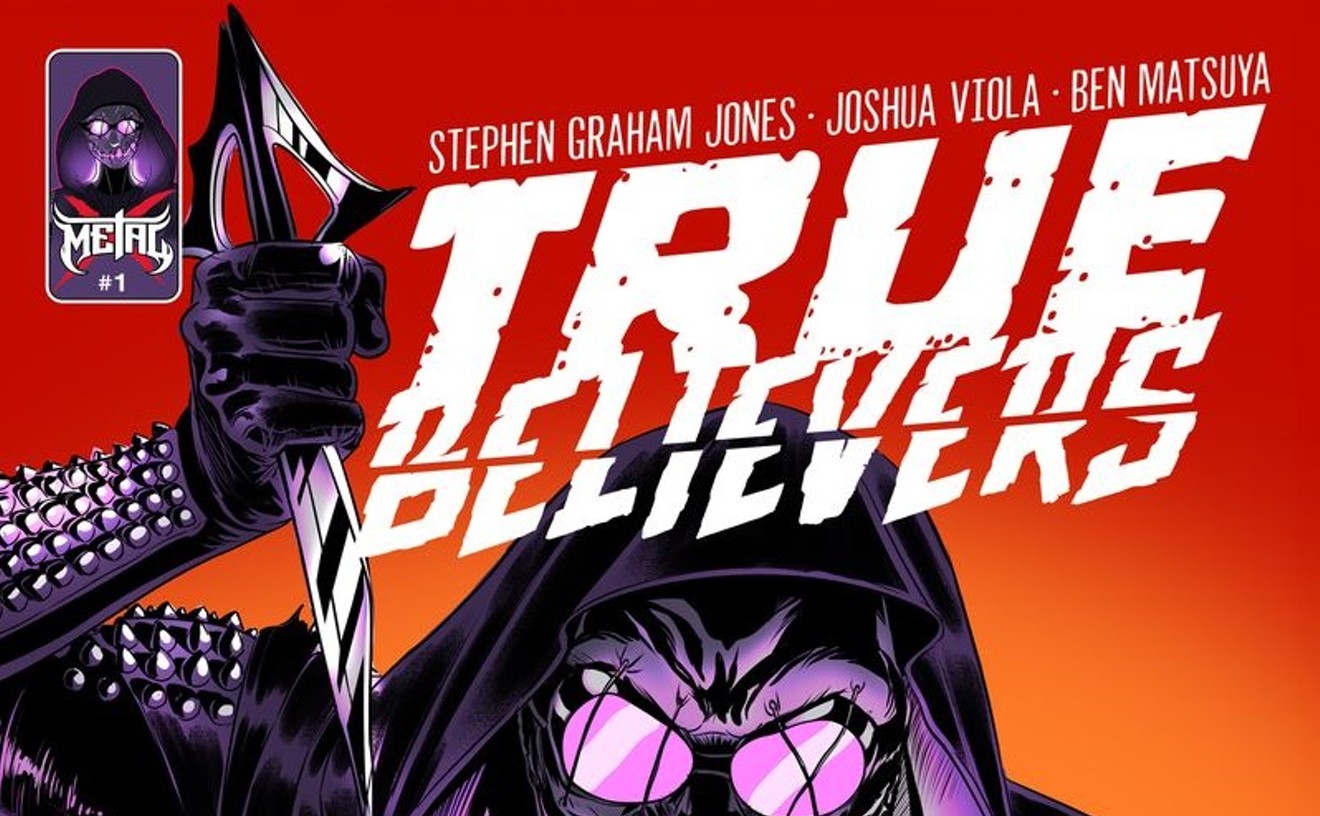Not so Britta Erickson, executive director of the Acoma Center. Her nonprofit arts organization has teamed up with Curious Theatre Company artistic director Chip Walton (who directed both parts of Hunger Artists' acclaimed production of Angels in America a couple of seasons back) to present the regional premiere of Paula Vogel's Pulitzer-winning How I Learned to Drive.
In fact, the remarkable success of Angels, a seven-hour marathon that played to capacity crowds in the Acoma Center's space--which had no air-conditioning at the time--during some of Denver's most sweltering summer days and nights, prompted Erickson and Walton to take a closer look at what they had managed to achieve--and what needed to be drastically improved.
"The cast had spent three months rehearsing and performing Angels," Erickson says, "and Chip had invested almost a year of his life directing it." Incredibly, however, the director, designers and performers were each paid an "honorarium" of only $70 for the entire rehearsal and performance period. It was a sum that, although agreed upon by all concerned, amounted to less than a dollar per day for their Herculean accomplishments. Determined to "step up our efforts a level," Erickson says that she and Walton committed to doing projects that would pay their behind-the-scenes artists "a living wage" as well as provide work for some Denver members of Equity, the professional actors' union, so that they don't have to rely on what's available at the Denver Center, "which doesn't typically cast locally," she says.
Erickson adds that Denver lacks the sort of "mid-tier Equity companies," such as Chicago's Steppenwolf or Seattle's Intiman theaters, that often bridge the gap between glitzy Broadway-style offerings and grittier, more experimental fare. "There's an audience that's being underserved here that's interested in intellectual entertainment and that isn't afraid of the harder side of life," she notes. With that in mind, Erickson says she and Walton decided to produce "a play similar to Angels, that was a regional premiere, that was politically or socially relevant."
Though Erickson says she secured a verbal commitment to produce Gross Indecency, Moises Kaufman's riveting drama about Oscar Wilde, the popular off-Broadway play wound up being presented by the Denver Center Theatre Company this past February (and sold out quickly enough to warrant its return as the opening production of the DCTC's 1999-2000 season). "So we decided that we wanted How I Learned to Drive," says Erickson, "which turned out to be a great decision for us, because three days after we signed on the dotted line, the play won the [1998] Pulitzer Prize."
A wildly funny yet devastating tale of a young woman who learns the rules of the road--and life--from behind the wheel of a car, Vogel's play explores the central character's troubling physical relationship with her otherwise eminently likable uncle. Understandably, says Erickson, the play's subject matter "hasn't been great for corporate sponsorship. So we've gotten creative." The production's sponsors include health organizations and incest survivor groups. Erickson found that pharmaceutical corporations "were more than willing to give $2,000 to [a local survivor group] and, in return, because I've done the legwork, that group becomes a sponsor for the show."
The decision to bear the expense of hiring and paying local actors, including one Equity performer, has also returned unexpected dividends. Erickson says that she was "turning cartwheels in my office" the day that she and Walton were awarded a $12,000 grant from the Colorado Council for the Arts. "The reason we got it was because of our commitment to create work for local artists," she says, adding, with unmistakable pride in her voice, "So that money is dedicated to paying the artists."
Even so, Erickson admits to moments when her enthusiasm waned--such as the day she realized that, in addition to underwriting the Equity performer's relatively sizable salary, she'd have to pay that performer's payroll taxes, workers' compensation and health insurance premiums and even pension benefits. Still, she says, "this is the right thing to be doing, these are the right people, this is the right project.
"I don't even care if people get angry," Erickson adds. "That's going to create dialogue, and I'm not afraid of that; I welcome it." Besides, as she points out, "if you do good work and you do it successfully, other theaters will recognize that it worked. Someone has to take the risk, and here we go."
--Jim Lillie
How I Learned To Drive, April 9-May 30, The Acoma Center, 1080 Acoma Street, 303-623-0524; $22 (discounts for seniors, students and groups). Opening gala April 9 to benefit the Acoma Center; tickets are $50-$100.










